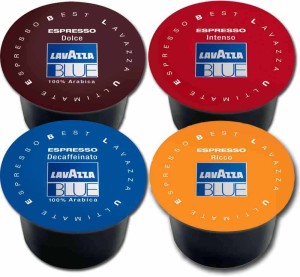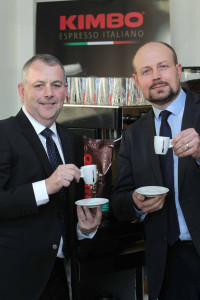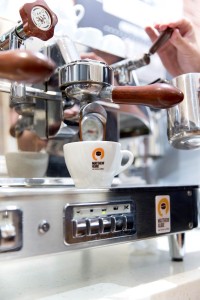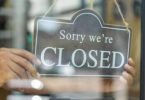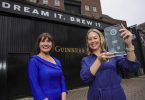Have you time for coffee in your pub?
Coffee, enjoyed by millions of people around the world, is one of the most extensively researched components in our diet. New studies regularly add to the already large body of scientific research. Taken overall, this research indicates that moderate coffee consumption (typically three to five cups per day) fits well with a healthy balanced diet and active lifestyle.
In 2014 some 4,558 tonnes of coffee were consumed in Ireland according to the Irish Coffee Council which represents the coffee industry here in Ireland. According to its revised figures 2014 volumes are 7.5% up on the revised 4,242 tonne figure for 2013.
In the foodservice industry. volumes level-pegged indicating that the hospitality industry could be doing more to stimulate coffee sales.
As more people take to it, coffee is beginning to take an increasing proportion of hot beverage sales.
“Whether it’s instant, espresso or filter, the Irish people have embraced coffee like never before,” says the Irish Coffee Council’s Spokesperson a, “With rising consumer confidence and more people back in work we’re finding people are drinking more coffee and we expect this to continue as the economy recovers.”
In volume terms, coffee makes up about 27% of the hot drinks market (both food service and retail).
“Coffee’s share of the market has increased by about 6% since 2009,” says Conor, “Tea’s still the market leader and accounts for about 60% of the market. Other hot drinks account for 13% of the market. This category includes chocolate and powder-based drinks and malted drinks.”
But we still drink far less than our European neighbours. Indeed we wouldn’t even get a look-in at the top 20 per capita coffee consumption countries. Finland tops the European table followed by Austria (9Kg), Denmark (8.6Kg), Sweden (7.31Kg) and Germany (6.4Kg). In contrast, Ireland sips a demure 2.8Kg per person per year.
So Ireland has lots of potential for growth and the hospitality trade could certainly be doing more to foster a coffee culture here.
Pubs are becoming increasingly associated with dropping in for a quick coffee of a morning as more ‘non-pub’ outlets move into selling beer. Increasinlgy, publicans are fighting back, finding that a great coffee offering helps fill their premises during the day period.
And selling coffee is a very profitable option for the hard-pressed publican; but to get ahead the pub’s coffee offering needs to reflect a premium quality product that attracts and appeals to consumers. Marketing your coffee offering in your pub successfully requires working closely with your coffee supplier to maximise sales.
Two distinct trends are emerging in the hot beverages sector.
One is the increasing confidence in automatic coffee machines to provide a more profitable, less labour-intensive and consistent cup of Joe and the other is an increasing demand for different types of tea. By etching out a ‘signature beverage’ for their hot offering, publicans can take advantage of the ‘add-onability’ of other products like scones, large biscuits and even chasing an espresso with a sparkling mineral water.
But as Conor Minogue points out, “When people speak about a coffee revolution, it’s less about the volume of coffee that’s being consumed and more about the cultural aspect. A café culture is developing in towns and cities across the country. Irish consumers are increasingly inquisitive when it comes to their coffee. They’re looking to experiment, try-out new bean-types, flavours and brewing techniques”.
True, the Irish consumer has taken to Ireland’s blossoming café culture, frequenting cafés, coffee shops and lately even public houses (if they’re serving quality coffee) over the last few years.
People have come to know so much more about coffee. Baristas are being born everywhere thanks to Barista courses which are nearly always jam-packed. So new blends, new styles of coffee and new bean types help keep the coffee culture moving ever forward.
75% of Irish adults drink coffee
A survey of 1,000 Irish consumers undertaken by the Irish Coffee Council in conjunction with Amárach Research discovered that three-quarters of Irish adults drink coffee.
A quarter of coffee drinkers rank themselves very highly on knowledge and appreciation of coffee and 32% of 15 to 24 year-olds see themselves as ‘connoisseurs’ despite drinking coffee the least frequently of all the age groups.
This research discovered that those aged 35 to 44 are drinking the most coffee with 76% drinking one or more cups a day. Those in the 14 to 24 age bracket drink coffee the least frequently with only 55% drinking a cup or more per day.
Cappuccino remains the favourite among consumers at 30% with Americano a close second at 27%. Americano proved the most popular with those over 45 while 22% of consumers chose Café Latte and 10% chose Espresso.
According to Conor Minogue, coffee is expected to see a growth of 14% in value terms at constatnt 2014 prices over the next five years, with retail value sales of €157 million predicted for 2019.
“Growth will continue to be strong, particularly within fresh coffee,” he said.
All this activity has led to the first Coffee and Tea Festival to be held in Dublin this September and in 2016 Ireland hosts the World Barista Championships which will see over 5,000 coffee enthusiasts arriving here.
Coffee & Tea Festival set for September
Dublin’s first Coffe & Tea Festival takes place from 12th to 14th September this year at the Industries Hall in Dublin’s RDS, Ballsbridge.
This will be followed in 2016 with the World of Coffee Exhibition to be hosted in Dublin alongside the World Barista Championship.
The Irish Foodservice Suppliers Alliance and the Speciality Coffee Association of Europe have again partnered to produce both of these events. The two have collaborated in the Irish Barista Championship over the past 15 years and it’s hoped that this will inspire and educate the public as well as the media about the culture and lifestyle of coffees and teas.
Visitors can experience the coffee roasting process first hand at the Festival which will also host tasting rooms.
Batchelors Coffee Company & Lavazza
Making coffee with a traditional espresso machine can be a complicated process. So many variables are involved in the process – freshness of the beans, water temperature, length of extraction and much more – that even with a good machine and a good quality bean it’s still possible to get the process very wrong!
Therefore a fully-trained and available Barista was the answer – until now.
Batchelors Coffee Company and its coffee partner in Ireland Lavazza Coffee Company have recently introduced a ‘Coffee Capsule System’ that covers all of the above at the touch of a button. For smaller less busy coffee houses the use of a Coffee Capsule System will work first time every time – perfectly.
The system is called ‘Lavazza Blue’.
Lavazza Blue has been specifically designed for the lesser volume location where coffee quality is paramount but the volume being served is too low to justify a full-time fully-trained Barista. Bars, restaurants and leisure centres are ideal locations for the Lavazza Blue system.
Lavazza Blue is a high quality, automated solution to the needs of this sector, offering milk-based drinks such as Cappuccinos, Lattes etc served excellently all day and all year round.
For more information contact : Anthony Cooney , General Manager , Batchelors Coffee Company on our hotline number 1850 32 32 32
United Wine Merchants signs with Kimbo
United Wine Merchants has teamed-up with Kimbo Coffee to become exclusive IoI distributor of Kimbo Espresso Italiano Coffee. Having spent 30 years as an established wholesale business within the licensed trade, Kimbo Coffee will be a diversification for United Wine Merchants which will supply it directly to cafés, restaurants, hotels, bars, offices and pubs, securing the Westbury Hotel, Dublin, as one of its flagship accounts.
“Coffee’s an increasingly important revenue stream for pubs with excellent profit margins of 80% to 90%,” said UWM’s Managing Director Martin McAuley, “Within the coffee market it’s important for staff to be well-trained to keep quality and consistency high”.
UWM in partnership with Kimbo intends to help deliver an experience that will bring repeat and loyal customers.
“We’ve a dedicated team and a fully-trained in-house Kimbo All-Ireland Ambassador will deliver expert training and support to our customer base,” said Martin.
Kimbo’s UK Managing Director Angus McKenzie added, “Together we hope we can introduce good quality coffee into pubs across Ireland in an attempt to challenge the high street coffee chains for a share of this ever-growing market”.
Kimbo’s the Number 2 coffee in the competitive Italian retail market for packaged coffee. It intends offering the market a wide range of products to meet the diverse demands of consumers.
In order to prepare a perfect Italian espresso it’s important to have the finest Italian-made espresso machine. UWM has secured local service partners who’re committed to delivering high quality engineering back-up support to espresso machines in the field.
UWM’s team will assist in identifying the machine that best suits the outlet’s coffee requirements and will be able to offer full service packages.
Coffee in pubs – a growing profit centre
Having a high-quality coffee offering can help pubs drive sales during different day parts, believes Andrew Jack, Head of Marketing at Matthew Algie.
“Coffee’s now on par with the pint as a tool for socialising,” he says, so offering well-made coffee during the day and evening is a way for pubs to increase margins.
More pubs are getting as much turnover as possible by opening for breakfast. The morning remains the highest consumption period for coffee and breakfast is the fastest-growing out-of-home consumption occasion, he says, “So by offering great quality coffee in the morning, pubs are capitalising on two consumer trends”.
Matthew Algie works with the on-trade market and believes in customised service.
“No two on-trade businesses are the same and independent roasters such as Matthew Algie are very well-placed to support pubs who’ve not previously had a high quality coffee offering,” Andrew explains, “We provide Barista-training and business advice to help our customers use their coffee offering to increase sales.”
The best suppliers share current drink trends knowledge and offer support on developing hot drinks menus tailored to specific demographics – for example a menu featuring drinks containing flavoured syrups and toppings particularly appeals to younger consumers. More mature coffee connoisseurs enjoy menus offering a choice of coffee blends.
Matthew Algie’s clients are assigned their own Coffee Sales Manager to give expert advice on topics ranging from operational efficiency to menu trends to help clients effectively market their coffee offering. Matthew Algie can also provide POS for publicans to effectively promote their drinks. A machine rental service is also available.
1 in 10 would pay up to €5 for ‘perfect cup of coffee’
The average spend on a cup of coffee is €2.83 but one in 10 would pay up to €5 for a perfect cup – an increase of €2 in the last two years. New research reveals quality as the most important factor when buying coffee. It’s reflected in the price that Irish consumers will pay.
The survey of 1,200 Irish consumers for UCC Coffee UK & Ireland by Allegra Insight last January found that men consume more coffee (1.71 cups) out of home than women (1.53 cups) but women will spend more on their coffee fix (€2.86 on average versus €2.78 for men).
The survey also discovered that over half of consumers (52%) are not brand loyal and that 41% mostly buy coffee to take away while over a third (36%) are positively influenced by ethical accreditation.
“It’s a growing market and there’s opportunity to profit from coffee” said Phil Smith, Category Manager for UCC Coffee UK & Ireland, “but it’s clear from these results that one size doesn’t fit all. You need to know your consumer and tailor your offer. The research showed that promotions, for example, are a great way to target a younger customer base as 18 to 25 year-olds are most influenced by this.”
Further results showed:
- The most important factors when deciding where to buy coffee:
o Quality (54%)
o Cleanliness (30%)
o Convenience (28%)
- The most popular coffees out of home:
- Cappuccino (55%)
- Latte (41%)
- Americano (36%).




